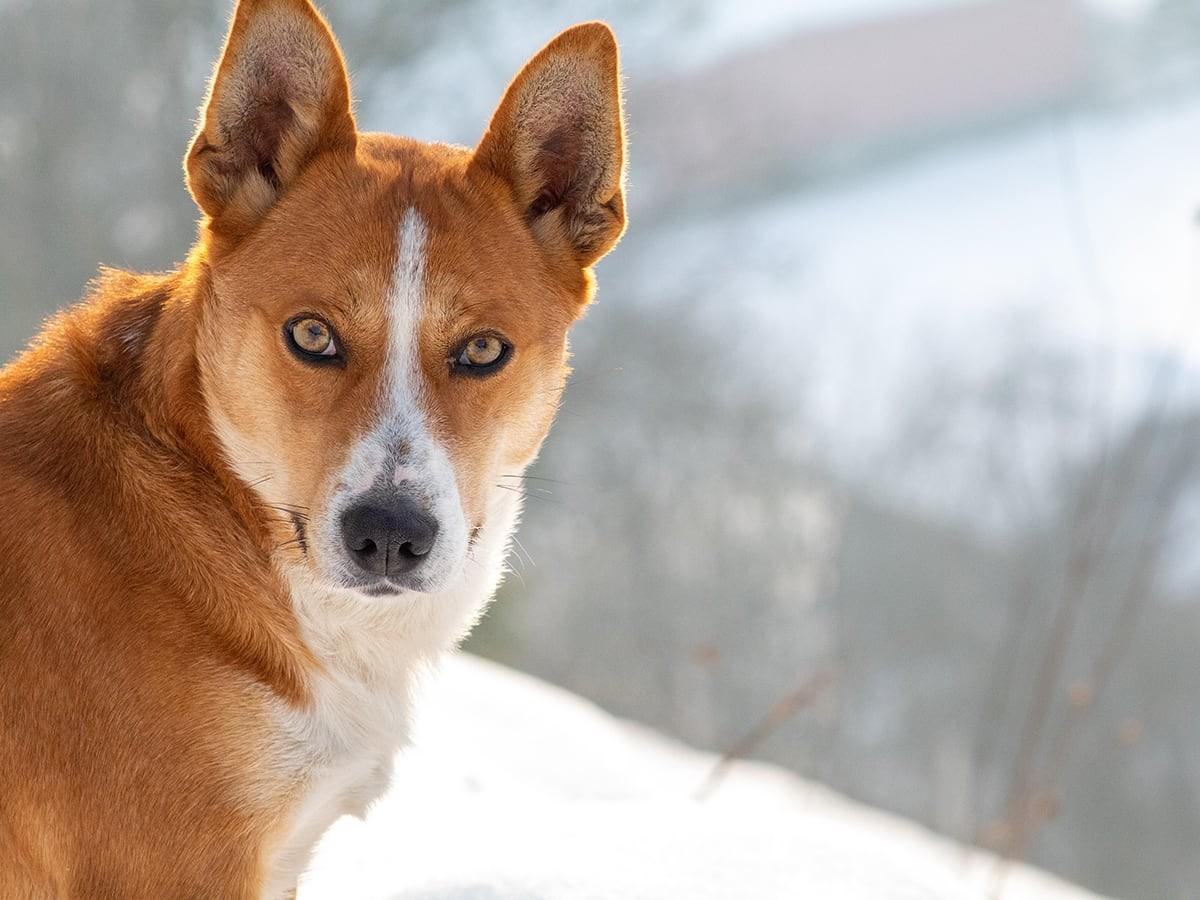
Norwegian Lundehund
The Norwegian Lundehund is a small to medium sized dog with a dense coat and acrobatic body. They have triangular ears and long paw pads.
Breed Profile
Height
12 - 15
Inches
Weight
20 - 30
Pounds
Life Span
12 – 13
Years
Health
health
Inflammatory Bowel Syndrome
What is it?:
Inflammatory bowel Syndrome is a condition where the intestines are invaded by inflammatory cells. It can be caused by irritation in the intestinal tract.
Clinical signs
Irritable Bowel Syndrome is a condition that can be triggered by stress and a change in their diet. The clinical symptoms for irritable bowel syndrome are -
Diarrhoea
Chronic vomiting
Pain in the abdomen
Constipation
Weight loss
Loss of appetite
In some cases a voracious appetite
Unable to digest food
Treatment
One of the best ways to treat Inflammatory Bowel Syndrome is medications like anti-inflammatory drugs or antibiotics may be given to keep the swelling and the pain in check. Vitamin B12 may also be given if the dog is unable to absorb the nutrients. Probiotic supplements also help balance the bacteria in their body.
Eligible vet bill
$1,000
*Hypothetical reimbursement examples illustrate reimbursement of an eligible vet bill at the noted reimbursement rate, assuming the annual deductible had already been satisfied and the annual coverage limit has not yet been met. Annual deductible, co-insurance, benefit and coverage limits, and exclusions may apply. Eligibility may vary. Visit https://spotpetinsurance.ca/sample-policy for full terms. For Canada enrollments only, reimbursement rate is based on the pet's age.
health
Toxic food ingestion
What is it?:
Toxic food ingestion may cause your dog to experience diarrhea after eating something toxic.
Clinical signs
The symptoms of toxic food ingestion are:
Weakness
Vomiting
Blood in stool may be seen
Clear signs of dehydration
Drooling in dogs
Painful passage of liquid diarrhoea
Treatment
If the dog experiences runny stool, then they should be asked to take a break by fasting for 12-24 hours. In extreme cases, they may be given medication.
Eligible vet bill
$1,000
*Hypothetical reimbursement examples illustrate reimbursement of an eligible vet bill at the noted reimbursement rate, assuming the annual deductible had already been satisfied and the annual coverage limit has not yet been met. Annual deductible, co-insurance, benefit and coverage limits, and exclusions may apply. Eligibility may vary. Visit https://spotpetinsurance.ca/sample-policy for full terms. For Canada enrollments only, reimbursement rate is based on the pet's age.
Personality
Friendly
The Norwegian Lundehund is a friendly breed and gets along with children and other pets even though they are aloof with strangers.
Acrobatic
The Norwegian Lundehund is a breed that is flexible and almost acrobatic. They can climb anything and because they are tiny, they can pass through narrow spaces
Mischievous
The Norwegian Lundehund is a smart breed but at the same time they can be curious and mischievous, hence they may need some supervision.
Lifetime Care
Coat
They have a double coat, with the undercoat that is soft and the outer coat being thick.
Colors
The Norwegian Lundehund has a coat that can be white, black, brown, white and brown, grey with black, and yellow with white.
Hypoallergenic
No
Grooming
The Norwegian Lundehund needs to be brushed weekly depending on the season. After spring they may shed their undercoat, which may require more brushing. They need a bath once a month as they are a relatively clean breed.
Training
The Norwegian Lundehund is a smart dog and loves problem-solving but they can be stubborn at the same time. They need to be trained at an early age to adjust better. Their training sessions need to be fun so that they do not lose interest. They work well with positive reinforcements but not with harsh training.
The Norwegian Lundehund dates back to the 1400s. Their origin is slightly unclear but they are said to have been found in Lofoten, an archipelago of Norway. These dogs were good at climbing rocky hills and were bred to catch puffins, which made them useful to the locals. During World War II this breed reached the brink of their extinction.
Norwegian Lundehund: Introduction to the Breed
The Norwegian Lundehund has the following:
Norwegian Lundehund Physical Characteristics:
Long paw pads
Six toes per foot
Rectangular ears
Acrobatic body
Norwegian Lundehund is best suited for pet owners:
Who wants a pet that is protective
Who are active
Who has time to spend with their pups
Who are not novice owners
Things to watch out for before deciding to own a Norwegian Lundehund
The Norwegian Lundehund may be affectionate towards their families but can be aloof around strangers.
They are extremely flexible and can bend their head backward.
They are not great watchdogs.
These dogs are not great lap dogs but they like to cuddle.
They require 30-60 mins of exercise each day to keep them healthy.
What should a Norwegian Lundehund eat?
The Norwegian Lundehund should be given food twice a day. Their food should consist of nutrients and proteins which are well-balanced. The Norwegian Lundehund tend to have a sensitive stomach, hence they may require a special diet. They should also have access to fresh water all day long. They require a homemade diet that is high in protein.
Conclusion
The Norwegian Lundehund is a rare breed to own. They may be athletes but require very less exercise. They are suitable for owners that are active. They do not require much grooming and are a low-maintenance breed that way. They are the most playful and loyal companions one can have. They may be aloof around strangers but they are not aggressive. If you are looking for a companion for hiking then they are the best out there!
Sources:


